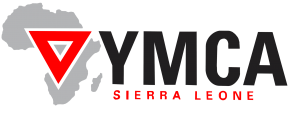Our Programme Focus
Programme Thrust for 2010-2015
• Health,HIV/Aids and Mobile Health Clinic
• Peace Building
• Human Rights and Justices
• Civic Education
• Skills and Vocational Training
• Computer and information Technology
• Advocacy
• Livelihood Support
• Hostel Accommodation
• Agriculture
Public education of youths on the findings and recommendations of the TRC report:
The youths were pivotal in the conflict in Sierra Leone. The YMCA seeks to undertake a nation wide sensitization of youths about key findings and recommendations of the report. In addition, youths will be trained in advocacy and lobbying skills that will help them hold local and national authorities accountable for a faithful and timely implementation of the recommendations.
Child protection and welfare:
The protection and nurturing of children is a priority in the YMCA-SL. Child rights violations is common and easily noticeable in Sierra Leonean communities. The YMCA seeks to design and community based programmes that would minimize the abuse of the rights of children. This will be followed by prompting the setting up of community-watch groups to monitor child rights violations and take community actions as appropriate.
Enhancing women’s participation in governance processes:
Negative cultural beliefs and political socialization has for long excluded women from participation meaningfully in governance processes that affect their lives. Hence, the axiom, “women are to be seen and not to be heard.” This notion is to be challenged if women are to be given the opportunity to grow and equal rights in decision making and other issues that affect their lives.
Environmental/Ecological education:
Environmental issues are of great challenge to Sierra Leone . This is evidenced by the alarming deforestation and environmental pollution that is equally threatening to Sierra Leoneans and the International community present in Sierra Leone. The project will involve:
Establishment of wood-lots in severely threatened communities:
Training on the construction of mud stoves for women. This energy saving devise will help in the reduction of fuel wood for cooking and for other domestic purposes.
Adult Literacy/continuing programmes:
lliteracy is pervasive among young people who constitute 45% of Sierra Leone’s population.
The YMCA seeks to engage in literacy programmes especially for female youths.
Youth Livelihood & Governance Project
“Supporting Youth Livelihood and Governance in Sierra Leone and Liberia” is a single project funded by the European Commission and Comic Relief through a UK based partner Y Care International with the specific objective of improving the socio economic status of disadvantaged young people through vocational and technical skills training and participating in local decision making in post conflict communities.
This project is a four year project (Jan 2009 – Dec 2012) responding to the urgent need to providing sustainable livelihood opportunities for marginalized and war affected young people and as well as empowering young people for greater citizen participation in local decision making and making government structures more transparent.
The Project Target Population:
• Young unemployed people (aged 15 – 35), including particularly vulnerable groups such as PLHAs and young people with disabilities.
• Members of Community Based Organizations, particularly youth civil society organizations.
• Members of NGOs providing youth services.
• Local Authority Representatives
Project Target Locations:
The project is implemented at nine project sites in Sierra Leone and Liberia. In Sierra Leone: Makeni (Northern Province), Bo (Southern Province), Kenema (Eastern Province) and Freetown (Capital City /Western Area) and in Liberia: Monrovia (Capital City), Kakata (Margibi County), Gbarnga (Bong County), Ganta (Nimba County), Zorzor (Lofa County).
Core Project Activities:
Youth Livelihood Supports
• Vocational, Business Management and Life Skills Trainings.
• Post Vocational Skills Training Support (including starter kits) to help trainees to either establish their own micro-enterprises, or undertake work placements with
employers.
